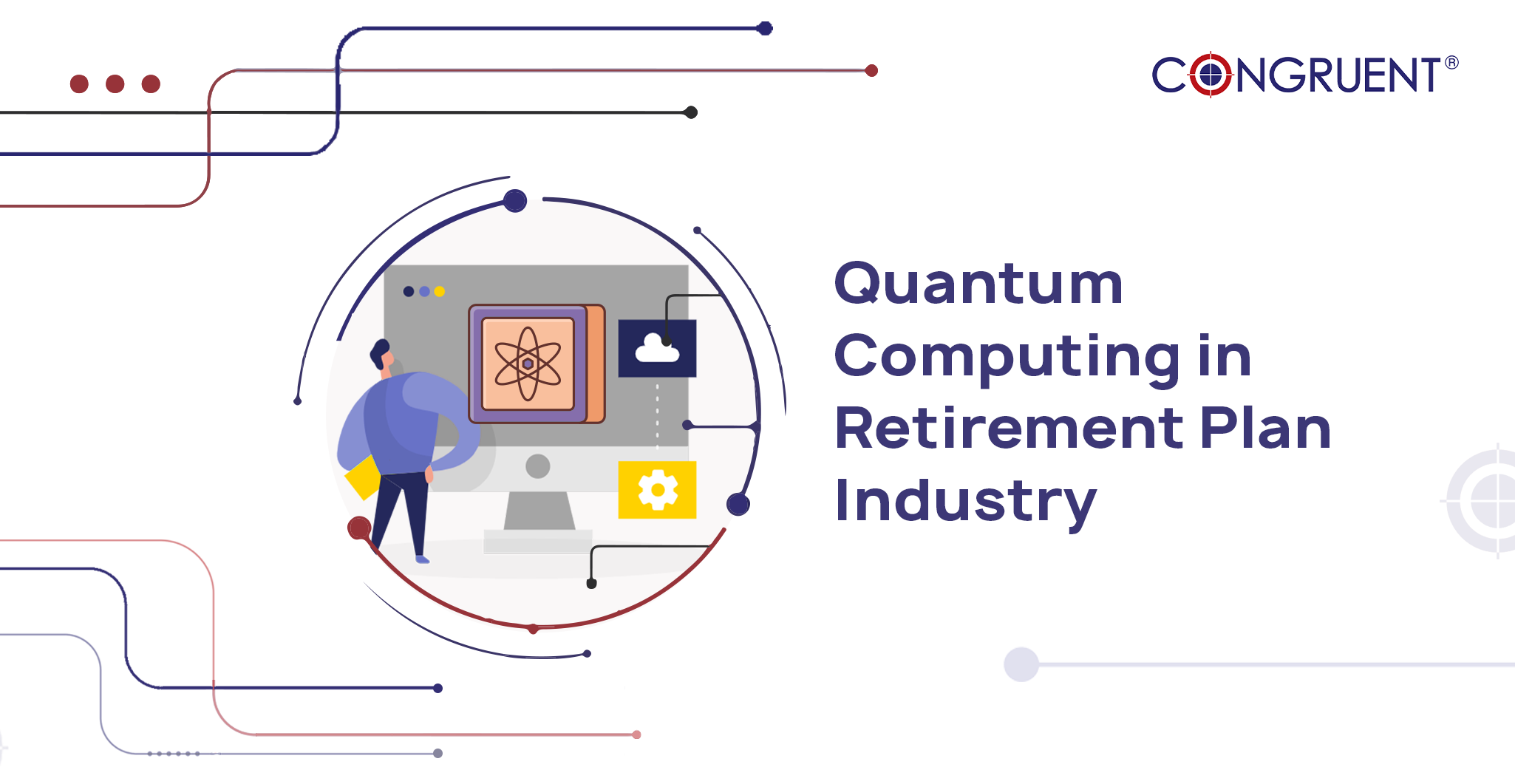
Introduction
Competition in the 401(k) retirement plan industry is increasing. Administrators and recordkeepers want to stay afloat amidst rising fee pressures, evolving demographics, and changing customer preferences.
Leveraging technology is one way to achieve the desired outcomes. Quantum computing is among the advanced technologies that can provide recordkeepers and retirement plan administrators with a competitive edge.
Quantum computing can help optimize your retirement plan administration services by assisting your transition from legacy systems. In addition, it can significantly improve recordkeeping speed and accuracy while reducing costs.
Let’s break down how quantum computing can help 401(K) plan administrators and recordkeepers advance in the retirement plan industry.
What is quantum computing?
Quantum computing is a form of computing that utilizes subatomic particles to solve problems much faster than traditional computers. It uses qubits (quantum bits) instead of bits of binary code to store and process data. Qubits work differently than bits because they can be in multiple states simultaneously (called superposition).
It means that quantum computers can process more information simultaneously, which makes them faster and more powerful than traditional computers. Recordkeepers can utilize these capabilities to speed up complex tasks like analyzing large datasets.
Additionally, quantum computers can access complex algorithms designed to solve optimization problems. They can work with data with noise or other errors without sacrificing accuracy or speed.
How does quantum computing help with retirement planning?
Quantum computing offers retirement plan administrators and recordkeepers a massive advantage when monitoring account balances and tracking plan transactions.
By utilizing the power of quantum computing, administrators and recordkeepers can create more efficient plans for their clients. For instance, it allows them to quickly identify optimal investment strategies by analyzing massive amounts of data about market trends, participant preferences, and other factors that affect retirement planning decisions.
Additionally, it helps them identify opportunities for cost savings by reducing the time spent on manual processes such as fund selection and rebalancing. By leveraging quantum computing technology, retirement plan administrators can reduce operational costs while improving customer service levels at the same time.
Finally, it helps them better assess risk using sophisticated algorithms to simulate various scenarios to determine which strategies will yield the best outcomes over time. As a result, they can identify potential fraud or compliance issues quickly and accurately.
The benefits of quantum computing in Retirement planning
Using quantum computing for retirement planning offers numerous advantages compared to traditional systems:
- Make better decisions by quickly analyzing vast amounts of data without sacrificing accuracy or precision.
- Reduces costs by eliminating manual processes.
- Enhances 401(K) compliance and year-end reporting capabilities.
- Improves security on a single platform rather than across multiple systems.
- Solve complex optimization problems such as portfolio management and asset allocation.
Conclusion
Quantum computing has the potential to revolutionize the 401(k) retirement plan industry by providing administrators and recordkeepers with an unprecedented level of efficiency. Retirement plan service providers must be willing to embrace new technologies to stay ahead of their competition.
You can leverage the superior speed and performance capabilities of quantum computing. It offers a versatile approach to solving complex optimization problems while reducing costs associated with manual processes. As the retirement landscape evolves, quantum computing will undoubtedly play an important role in retirement plan administration.
